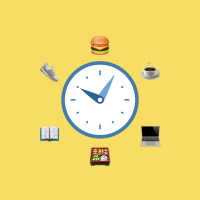Understanding the Importance of Establishing a Routine
In the human psychological landscape, establishing a routine holds a cardinal place. It serves as an anchor, lending structure to our daily lives and allowing us to cultivate habits that yield optimal performance over time. By grounding us in a rhythm of systematic activities, routines both streamline and standardize our daily transactions. As a result, we can navigate through tasks with fewer conscious decisions, freeing our mental space for higher-level cognitive processes, thereby cultivating clarity and peace within us.
Moreover, routines aren’t just a mechanism offering seamless life navigation; they are potentially an essential tool for our survival. Our brains are wired to cultivate shortcuts for routine tasks, reducing the cognitive burden and the possibilities of common errors. Routine-driven behavior shapes our neurological wiring for the better. By bypassing the intentionality of tasks, routines let us operate on autopilot for low-level tasks while we direct our attention towards more demanding or enjoyable tasks. Thus, the psychological and neurological merits of routines are something we cannot afford to ignore.
The Positive Impact of Routine on Mental Health
In the hustle and bustle of everyday life, mental health often takes a backseat. However, introducing a consistent routine in our lives can greatly impact our mental health favorably. A well-structured routine can act as an anchor, grounding us and giving our lives a sense of order. It eliminates the stress of disorganization and uncertainty, leading to a more balanced state of mind. Furthermore, the predictability of a routine can boost our confidence and reinforce our sense of control over our lives.
Interestingly, routines are not just about following a fixed schedule. They are also about incorporating productive and intentional activities that stimulate our minds and thus act as a source of satisfaction and self-accomplishment. This includes activities like reading, working out, pursuing a hobby, or practicing meditation. When these become a part of our daily routine, it prudently impacts our mental health by keeping us engaged, ensuring we have less time to ponder over stressful thoughts and insecurities. Hence, a well-chalked out routine has myriad advantages – it helps build resilience, enhances mental stamina, reduces anxiety, and aids in fostering a positive outlook.
Enhancing Physical Well-being Through Routine
Adherence to a structured routine holds numerous benefits for our physical health. For instance, setting specific times to eat meals can significantly aid in maintaining a healthy metabolism. Including regular exercise in your daily routine is similarly valuable. Even a quick 30-minute workout has the power to improve cardiovascular health, build muscle mass, and enhance overall bodily function.
Incorporating activities such as yoga or meditation into your routine can further amplify these benefits. These practices promote mindfulness, helping us tune into our bodies and understand their needs better. By establishing a routine that prioritizes physical activity and healthy eating, we are paving the way for enhanced physical well-being. Remember, consistency is key – it’s the frequency and regularity of these activities that make a positive difference.
How Routines Boost Productivity and Efficiency
Establishing regular routines can significantly enhance both productivity and efficiency. They provide an internal structure that breaks your day into manageable chunks and defines clear parameters for the tasks at hand. The predictability offered by routines can eliminate time spent making decisions, thereby optimally utilizing cognitive resources for tasks that demand innovation and creativity.
Moreover, routines ensure that important tasks don’t get neglected, paving the way for increments in productivity. The natural discipline that comes with maintaining a routine reduces redundancy in work and makes the execution of tasks more streamlined. This distinct structure decreases instances of procrastination and, in turn, increases work efficiency. In a nutshell, the more systematized your routine is, the more proficient you become.
The Role of Routine in Stress Reduction
In our fast-paced world, stress has unfortunately become a common part of daily life. Juggling numerous roles and responsibilities, unpredicatable events can leave us feeling overwhelmed, anxious, and unsure of how to cope. In such a scenario, maintaining a routine takes on a significant role. Through its structure and predictability, a routine aids in reducing these stress levels by offering a level of normalcy and certainty amidst chaotic circumstances.
Establishing a daily routine helps us to organize our tasks effectively, it promotes a better understanding of our time and limits the fear of forgetting or overlooking crucial responsibilities. This structure minimally leaves room for ambiguity, providing us with the assurance that everything is under control. Moreover, routines enable us to carve out fixed time slots for relaxation and self-care amidst our busy schedules — something often overlooked otherwise. Hence, routines not only play an integral part in stress reduction but also help foster an overall balance in our lives.
Routine’s Contribution to Better Sleep Patterns
It’s a well-established fact that a consistent routine directly influences the quality of our sleep. When our bodies adhere to a regular pattern, they become accustomed to a set timing for activities such as work, meals, and, most importantly, sleep. By going to bed and waking up at the same time each day, our internal body clock, or circadian rhythm, becomes programmed to follow this schedule, leading to improved sleep quality and duration.
The significance of routine in ensuring better sleep patterns cannot be understated. Not only does sticking to a regular sleeping schedule ensure adequate rest, but it also helps the body to naturally wind down and signal it’s time for sleep. This, in turn, aids in reducing instances of insomnia or trouble falling asleep. Maintaining a regular sleeping routine thus paves the way for optimal physical rejuvenation, mental rest, and overall health.
Fostering Healthy Habits through Regular Routines
Establishing regular routines is instrumental in fostering healthier habits, serving as the backbone for a resilient and proactive lifestyle. Regular routines create a familiar pattern, reducing the mental energy required for decision-making and decreasing the likelihood of resorting to unhealthy convenience options. For instance, having a fixed weekly schedule for meal planning can help maintain a balanced diet by reducing the odds of last-minute unhealthy food choices. Similarly, exercising at a fixed time each day can aid in embedding physical fitness into one’s daily routine, thereby promoting overall health and well-being.
Furthermore, regular routines can provide the necessary structure that aids in cultivating healthier habits, contributing to a more balanced and fulfilled life. This is not only limited to physical health and well-being, but also activities that stimulate cognitive abilities and emotional health, such as reading, meditating, and journaling. Having these activities ingrained in one’s daily routine ensures consistency, thus making them a part of one’s lifestyle rather than mere tasks to be completed. Consequently, regular routines act as stepping stones towards achieving longer-term health goals, demonstrating their indispensable role in fostering healthy habits.
The Power of Routine in Achieving Goals
Routines are one of the most underrated strategies for achieving ambitious goals. They hold the transformative power that comes from consistent actions over time. These aren’t necessarily large or colossal actions, but rather incremental efforts that compound over time. This is the magic of routine: doing a little bit each day can lead to significant results over the long run. Consequently, routines are integral to the successful attainment of both personal and professional goals.
For instance, consider someone with a goal to lose weight. If they choose to run a marathon once and expect instant results, they will likely be disappointed. Yet, if they incorporate a simple daily fitness routine—say, a 20-minute run—they’re more likely to see lasting outcomes. This incremental approach applies to any goal, be it learning a language, mastering a skill or completing a project. Each step forward, small and seemingly insignificant when viewed in isolation, holds the power to create monumental change when repeated and sustained within a routine.
How a Routine Can Improve Time Management Skills
A well-defined routine is a game-changer when it comes to enhancing time management skills. One significant benefit of a routine is that it establishes a set schedule, allowing individuals to effectively allocate their time towards specific tasks. By intuitively knowing what needs to be accomplished and the time it requires, individuals can avoid wastage of time. Furthermore, routines reduce the decision-making time as individuals have a clear path and don’t need to spend time figuring out what to do next.
Establishing a routine offers a framework to prioritize tasks, limits multitasking, and promotes focus on one task at a time. It delineates the tasks into manageable portions, making it easier to tackle them within the scheduled time frame. With a routine, the risk of procrastination is minimized as tasks are planned and accounted for. In essence, maintaining a steady routine is key to improving time management skills and maximizing productivity.
Overcoming Challenges and Adapting to New Routines
Implementing a new routine admittedly brings a unique set of challenges. It often means altering deep-rooted habits, which can initially feel discomforting and overwhelming. However, the key to successfully overcoming these challenges is remaining flexible, patient, and persistent — realizing that change takes time. It’s also beneficial to break down the new routine into manageable steps, this tactic lessens the intensity of the transition and makes it far more achievable.
Adapting to new routines does not always go as planned. Unexpected shifts in circumstances may sometimes derail even the best-laid plans. This is not a cause for defeat, rather it should be viewed as an opportunity for improvement. One of the most effective ways to navigate through these roadblocks is by maintaining a resilient mindset, viewing obstacles as temporary setbacks instead of permanent roadblocks. Celebrating small victories along the way also aids in fostering a positive outlook, keeping you motivated on your journey to successful adaptation.






























